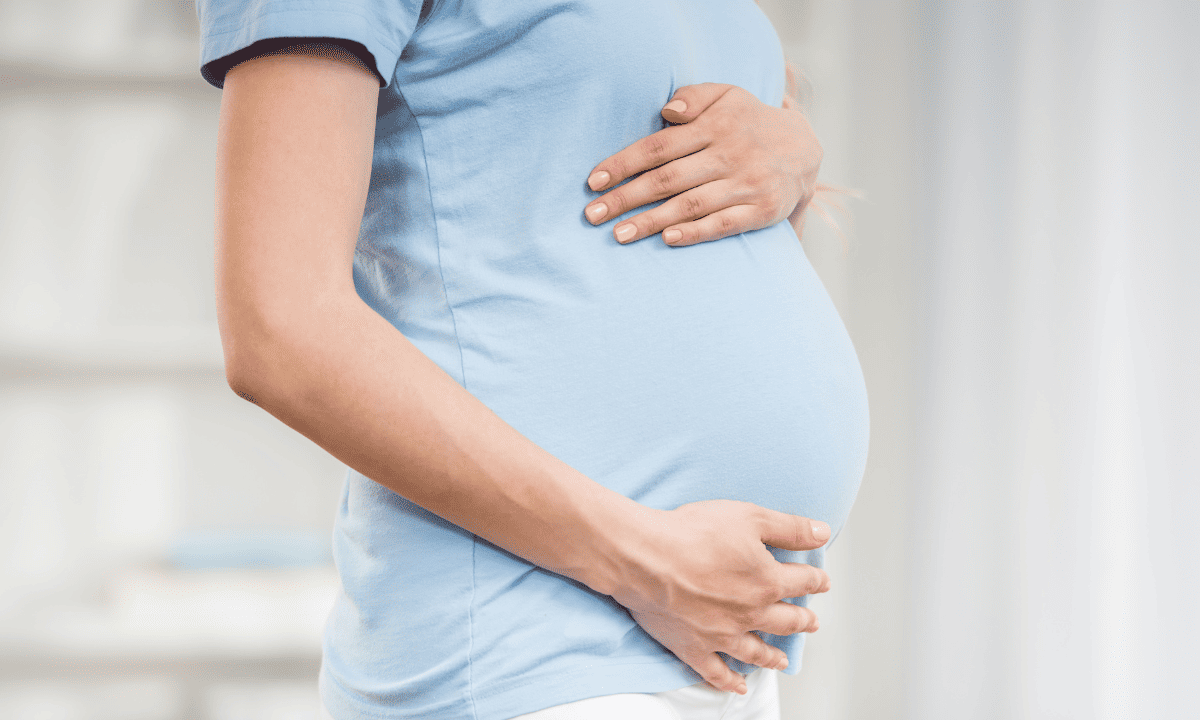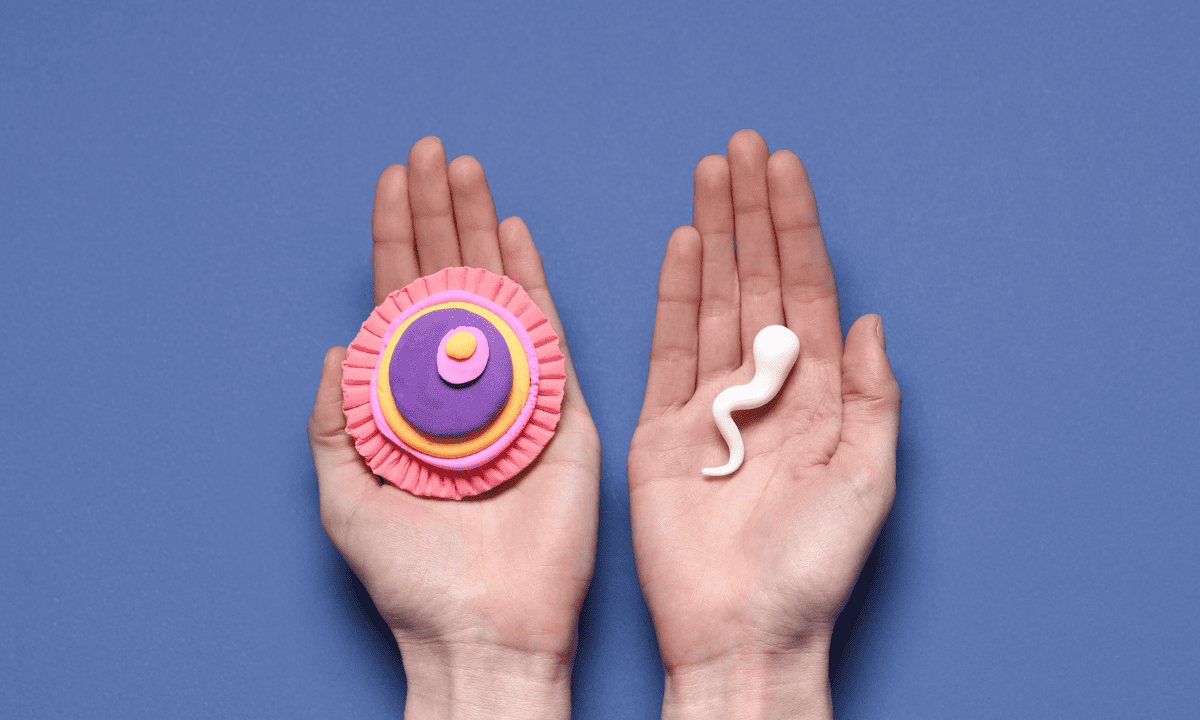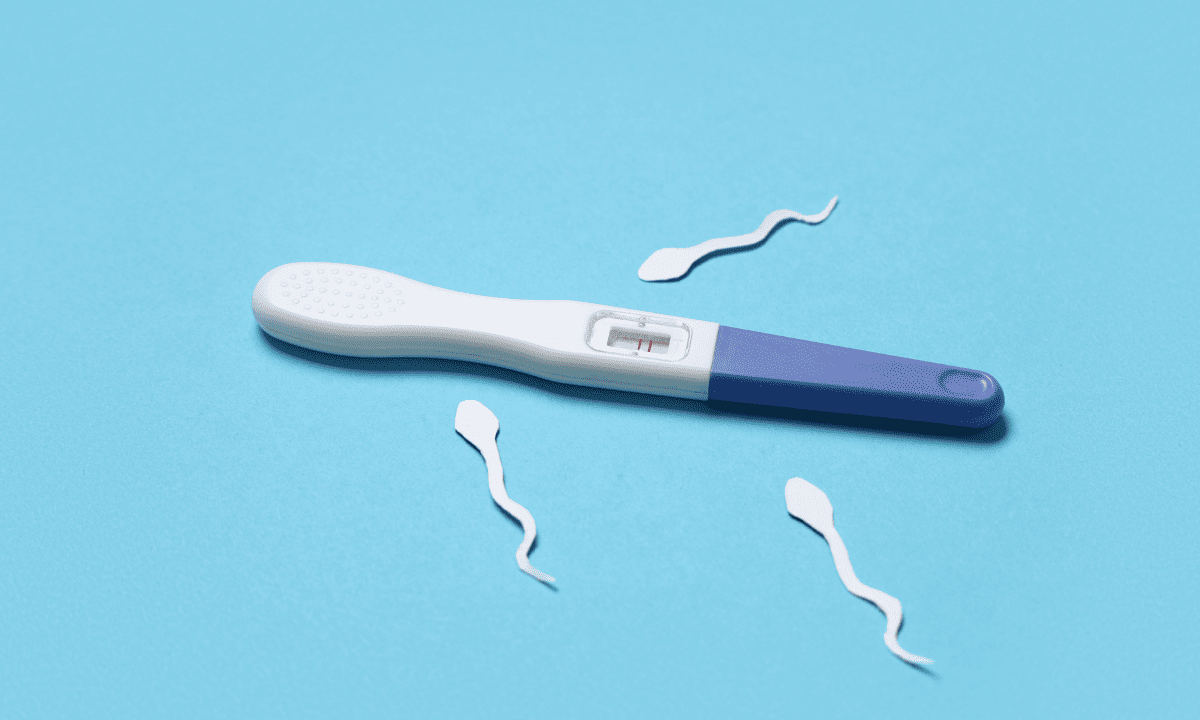You and your partner are considering intrauterine insemination (IUI) as part of your fertility treatment. However, you may be concerned about the hormone injections and ovulation medications that are usually involved and would prefer a more natural approach that works alongside your body’s monthly cycle.
If that’s the case, natural IUI could be the ideal solution. Unlike medicated IUI, this procedure follows your body's natural menstrual period and doesn’t require ovulation-stimulating medications or hormone injections. Understanding how natural IUI works and what to expect at each stage can help you feel more prepared and confident on your fertility journey.
What is natural IUI?

Natural IUI, or natural cycle IUI, is a type of IUI that doesn’t require medications to stimulate ovulation. In this method, pre-screened sperm is transferred directly to your uterus (womb) around the time of ovulation.
To ensure the timing of the sperm injection aligns with your ovulation, your doctor may perform hormonal testing and ultrasound scans. This procedure will occur between days 8 and 10 of your menstrual cycle to check follicle growth and assess whether your egg is maturing and ready for fertilisation.
Who is suitable for natural IUI?
Natural IUI is not suitable for everyone. To determine whether you can receive natural IUI, a blood test and an ultrasound may be employed to evaluate your menstrual cycle and the quality of your ovaries and uterus. A semen analysis from your partner may also be required to check their sperm health.
You may be suitable for natural IUI if you:
Have regular, predictable menstrual cycles
Are ovulating naturally
Have open fallopian tubes
Want to avoid or cannot tolerate fertility medications
Prefer a more natural, low-intervention approach
Have a partner with normal or only mildly reduced sperm count or motility
You might also want to consider natural IUI if you are:
Just starting to get fertility treatment
Under 35
Using donor sperm and don’t have any recognised reproductive issues
If you have irregular periods, hormonal disorders, or blocked fallopian tubes, your healthcare provider may suggest medicated IUI or In Vitro Fertilisation (IVF) instead. Schedule an appointment with Thomson Medical to find out whether this method is suitable for you.
How is natural IUI done?

Here’s what you can expect at each stage of a natural IUI:
Cycle monitoring
Before the IUI procedure, your ovulation needs to be carefully tracked. This helps ensure the timing is just right. Your doctor may use one or a combination of methods, such as:
Urine LH kits:
The most popular at-home option. These detect the hormone surge that signals ovulation.
Basal Body Temperature (BBT) tracking:
This test involves taking your temperature each morning. A slight rise can indicate ovulation, though it’s less precise.
Transvaginal ultrasound:
A transvaginal ultrasound is used by your doctor to check when your follicles are ready to release an egg.
This monitoring is usually preceded by a baseline ultrasound for IUI performed early in your cycle (around day 2 or 3) to confirm the uterus is ready for the process to begin and that no cysts are present.
Blood hormone tests:
Measure levels of LH, oestrogen, and progesterone to confirm ovulation.
The goal is to predict ovulation as accurately as possible so the sperm is placed at the optimal time.
Timing the IUI
IUI is scheduled to coincide with your natural ovulation. Usually, this means performing the procedure 24-36 hours after a positive LH surge.
Getting the timing right is crucial, as it maximises the chance that the sperm will meet the egg and fertilisation can occur.
Sperm preparation
On the day of the procedure, a semen sample is collected from your partner or a donor. The sample undergoes a process called sperm washing, which:
Removes impurities and seminal fluid
Concentrates the healthiest, most motile sperm
This step ensures that only the healthiest sperm are used, improving the chances of successful fertilisation.
Insemination procedure
Once the sperm is ready, the insemination itself begins. A thin, flexible tube (catheter) is gently inserted into your womb and the prepared sperm is injected.
The procedure is quick, usually just taking 5-10 minutes. No anaesthesia is required, and discomfort is typically minimal, with some women experiencing mild cramping similar to menstrual cramps or a Pap smear.
Post-procedure care
After the IUI, you may rest briefly before returning to your normal activities. Most women find that they can continue with their day without any problems.
About two weeks later, you will take a pregnancy test to see if the procedure was successful. This waiting period can feel long and emotionally draining, so it’s normal to feel anxious. Your healthcare provider will guide you on the best way to manage this time.
Our IUI specialists in Singapore
Loading...
What is the difference between natural IUI and medicated IUI?
While natural IUI works with your body’s natural rhythm, medicated IUI uses medications to help you release eggs. Here’s a table to show the key differences between the two approaches:
| Feature | Natural IUI | Medicated IUI |
|---|---|---|
Ovulation trigger | None | Uses fertility medications to stimulate egg production |
Number of eggs released per cycle | Usually 1 | 1 to 3 |
Monitoring | Less intensive | Frequent monitoring required |
Risk of side effects | Very low | Slightly higher due to medication |
Cost | Lower – fewer procedures and no medication. Around SGD 660 to 760 per cycle in public hospitals (excluding tests) | Higher – includes drugs and more monitoring. Around SGD 1,800 to 3,000 per cycle at private clinics, with up to SGD 2,000 extra for medication |
Benefits of natural IUI

There are a lot of benefits to natural IUI, especially if you want a gentle, low-intervention method:
Minimal medical involvement:
Your body follows its normal rhythm and doesn't take any fertility medicines.
Minimal side effects:
You won't have to experience mood swings or bloating if you don't use hormonal drugs.
Lower chances of twins:
The chances of having twins or triplets are relatively minimal because you normally only release one egg.
Cost-efficiency:
Natural IUI usually costs less because it doesn't need any additional medications or close monitoring.
Emotional safety:
Many women feel more confident in the procedure when they are in charge of their bodies.
If you use a sperm donor:
Natural IUI can be a great initial choice if you are utilising donor sperm and don't have any reproductive problems.
Risks of natural IUI
Natural IUI is usually safe; however, there are a few risks you need to be aware of:
Less likely to succeed each cycle:
Your age and general fertility will determine the outcome of natural IUI. In general, for women under 35, pregnancy rates are approximately 9.9% per cycle. IUI success rates are highest in the first 3 attempts, with pregnancy rates declining after the third cycle
Timing problems:
The egg and sperm may not meet if ovulation is not timed right.
Not suitable for irregular periods:
Women who don't ovulate regularly might not get as much out of natural IUI.
May need more cycles:
It may take several attempts before you get pregnant.
Always talk to your fertility specialist to find out which approach is best for you and your goals. Schedule an appointment with Thomson Medical today to discuss your fertility journey and find out if natural IUI is the right treatment for you.
FAQ
Is natural IUI as effective as medicated IUI?
The success rate of natural IUI depends largely on your age, ovulation health, and your partner’s sperm quality. While medicated IUI may have slightly higher success rates because it stimulates more eggs, natural IUI can be just as effective for those who ovulate regularly and have healthy reproductive function. It’s a gentler, lower-cost option that avoids the side effects of fertility drugs.
Does natural IUI work?
Yes. Natural IUI can work for:
Couples who struggle with fertility
People with slight male factor infertility, such as lower sperm count, reduced sperm movement, or other mild issues with sperm quality.
You are using sperm from a donor and don’t have other fertility concerns.
Many people get pregnant this way, but it can take a few cycles.
How many cycles should I try?
Most fertility experts say that you should try three to four rounds of natural IUI before thinking about medicated IUI or IVF. This allows your body time to react and helps you make a well-informed decision.
Can I switch to medicated IUI later?
Yes. Many people start with natural IUI and later choose medicated IUI for various reasons, such as:
Ovulation timing isn’t always predictable
You’ve had a few cycles without getting pregnant
You want to increase the chances of success with each attempt
Switching is common, and your fertility specialist can help guide the best approach for your situation.
Is natural IUI painful?
No. It is typically quick and relatively painless, though you may feel:
Mild cramping
Temporary spotting
Slight discomfort during the procedure
How do I track ovulation for natural IUI?
Accurately tracking ovulation is key to timing natural IUI. Common methods include:
Urine LH kits:
Detect your ovulation surge at home
Basal body temperature (BBT):
A slight morning temperature rise signals ovulation, though it’s less accurate
Ultrasound scans:
Monitor your ovaries and follicles to track egg development and confirm when ovulation is approaching
Blood tests:
Measure hormone levels, such as LH and progesterone, to confirm that ovulation is occurring at the right time for IUI
Your doctor may combine two or more of these methods to get the most accurate timing for your IUI.
The information provided is intended for general guidance only and should not be considered medical advice. For personalised recommendations and tailored advice based on your unique situations, please consult a specialist at Thomson Medical. Request an appointment with Thomson Medical today.
Reference:
Honda, T., Tsutsumi, M., Komoda, F., & Tatsumi, K. (2015). Acceptable pregnancy rate of unstimulated intrauterine insemination: a retrospective analysis of 17,830 cycles. Reprod Med Biol. https://pmc.ncbi.nlm.nih.gov/articles/PMC4286620/
For more information, contact us:
Thomson Fertility
- Paragon: 6252 7766
Thomson Specialists (Women's Health)
Request an Appointment